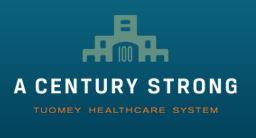 Representing a big win for whistleblowers, the Fourth Circuit Court of Appeal recently upheld a $237 million False Claims Act verdict against Tuomey Healthcare System, which some have billed as the “largest ever levied against a community hospital.”
Representing a big win for whistleblowers, the Fourth Circuit Court of Appeal recently upheld a $237 million False Claims Act verdict against Tuomey Healthcare System, which some have billed as the “largest ever levied against a community hospital.”
The case could have a tremendous impact on the company’s continued viability as it exceeds the annual revenue. After the verdict was originally rendered, Standard & Poor’s Ratings Services downgraded Tuomey’s credit rating by two notches — from “BB” to “CCC” suggesting that Tuomey is vulnerable to nonpayment. Also, several executives have had to step down from their positions.
As you might expect, Tuomey President & CEO Michelle Logan-Owens stated that Tuomey was “disappointed” in a press release posted on the company’s website. Nevertheless, Logan-Owens expressed her confidence that the company would find an “appropriate resolution” with the government in order to “emerge strongly” from its ordeal.
The massive verdict was the result of a jury finding that Tuomey paid doctors in ways that rewarded them financially for referring patients to the hospital in violation of the Stark Law, which prohibits kickbacks to physicians. The Fourth Circuit wrote that the “Stark Law is intended to prevent overutilization of services by physicians who [stand] to profit from referring patients to facilities or entities in which they [have] a financial interest.” The kickbacks tainted the hospital’s Medicare claims and led to the underlying qui tam case.
On appeal, Tuomey first argued that the trial court had improperly granted a new trial after Tuomey had prevailed the first time around. However, the Fourth Circuit ruled that the new trial was properly granted because the lower court had incorrectly excluded damning testimony from a lawyer with expertise in Stark Law who Tuomey had sought advice from and who testified that the physician “contracts did not pass the ‘red face test,’ and warned that the government would find this ‘an easy case to prosecute.’”
Tuomey then argued that the jury improperly founds that the contracts violated the Stark Law. The Fourth Circuit again sided with the whistleblower, concluding that a “reasonable jury could have found that Tuomey’s contracts in fact compensated the physicians in a manner that varied with the volume or value of referrals.”
Tuomey nevertheless insisted that even if the contracts did violate the law, it had not done so knowingly because it had relied on the advice of severalc consulting attorneys. The Court, however, ruled in favor of the whistleblower, noting that the aforementioned lawyer whose testimony was improperly excluded from the first trial had raised clear concerns over the contracts.
After disposing of some attacks at the lower court’s jury instructions and the damages calculations, the Fourth Circuit took up Tuomey’s last hope for reversal which was that the enormous verdict was unconstitutional under the Due Process Clause of the Fifth Amendment and Excessive Fines Clause of the Eighth Amendment.
The Fourth Circuit carefully conducted the Supreme Court’s constitutional test for reviewing punitive damages, which requires an analysis of:
- the degree of reprehensibility of the defendant’s misconduct;
- the disparity between the actual or potential harm suffered by the plaintiff and the punitive damages award; and
- the difference between the punitive damages awarded by the jury and the civil penalties authorized or imposed in comparable cases.”
The Court found the award to be constitutional, noting that an award of “more than four times the amount of compensatory damages might be close to the line of constitutional impropriety” and that the award in this case was at most 3.6 to 1 and possibly as low as 1 to 1 depending on how you calculated the damages. The Fourth Circuit’s reliance on a mathematical formula as the final constitutional crosscheck may be the most significant takeaway from this case for whistleblowers.
If you would like to discuss this case or any other whistleblower issues, please contact us.


